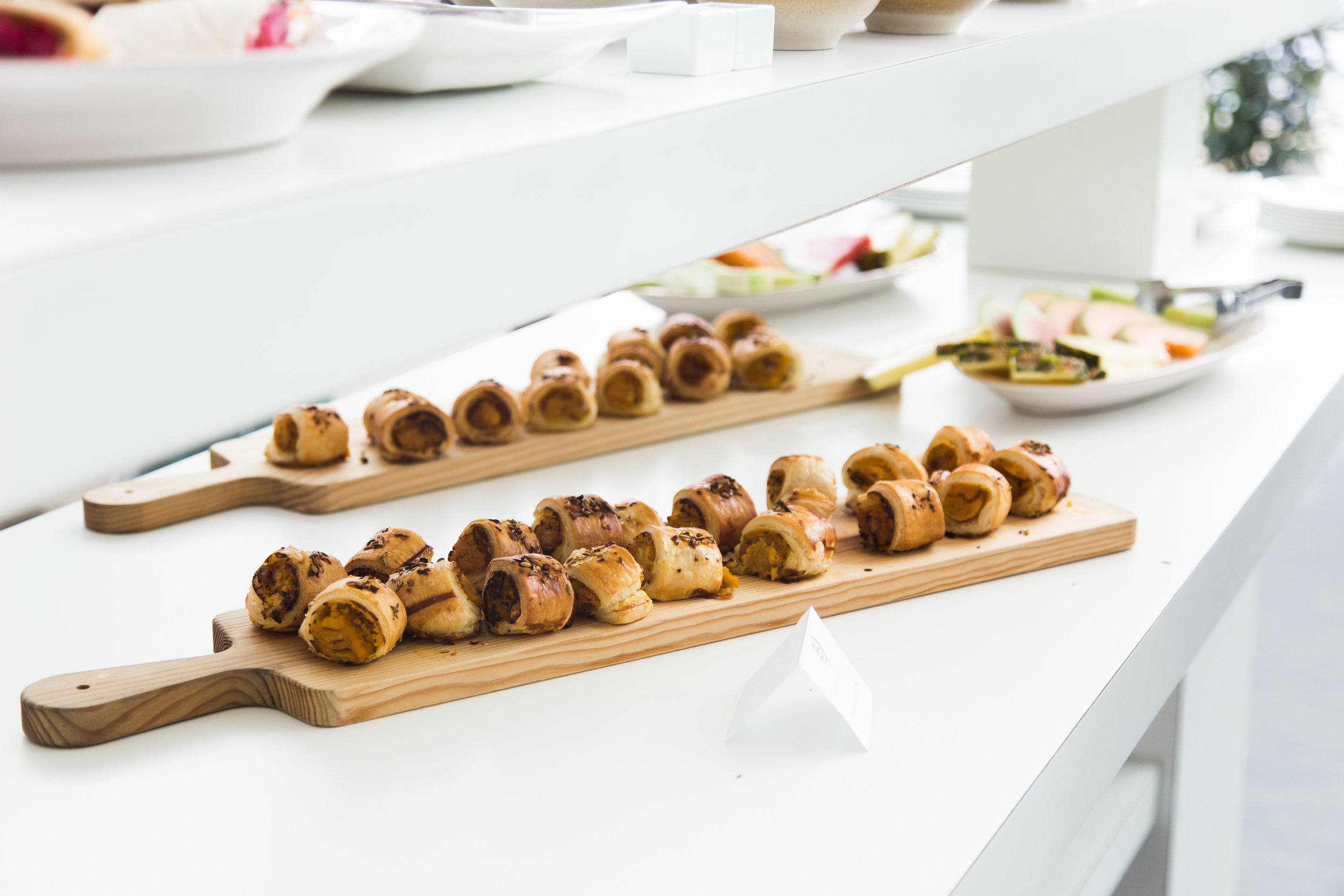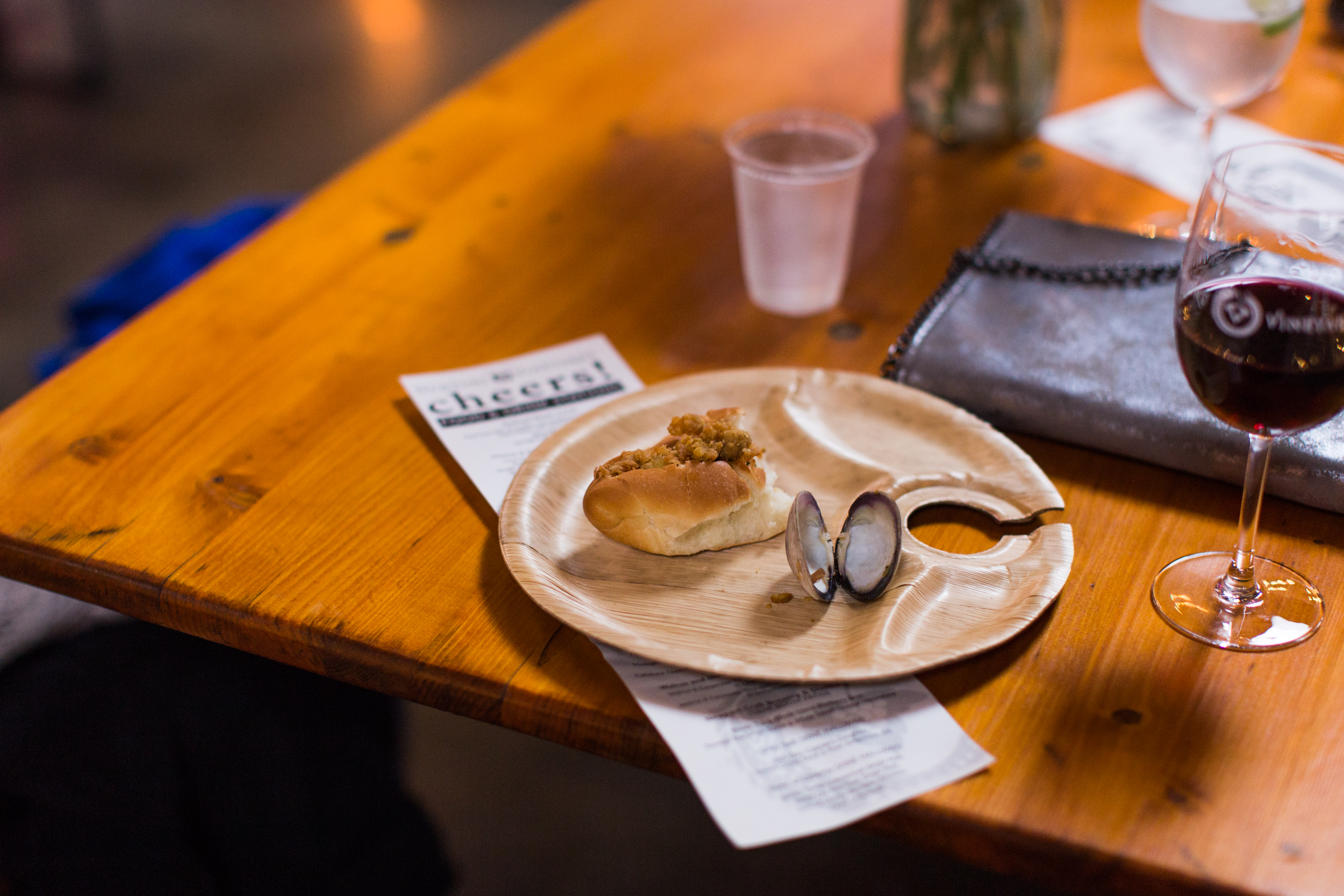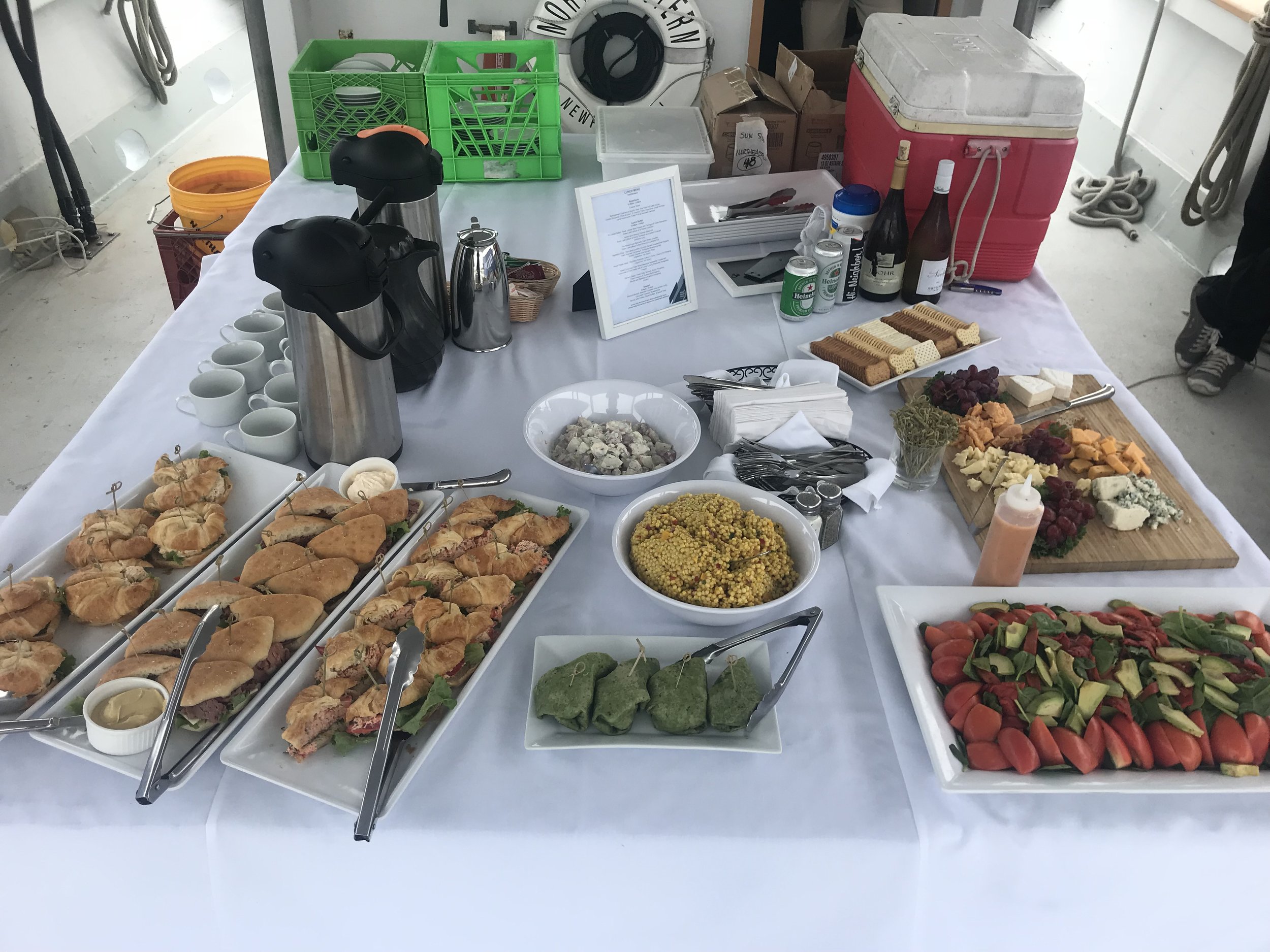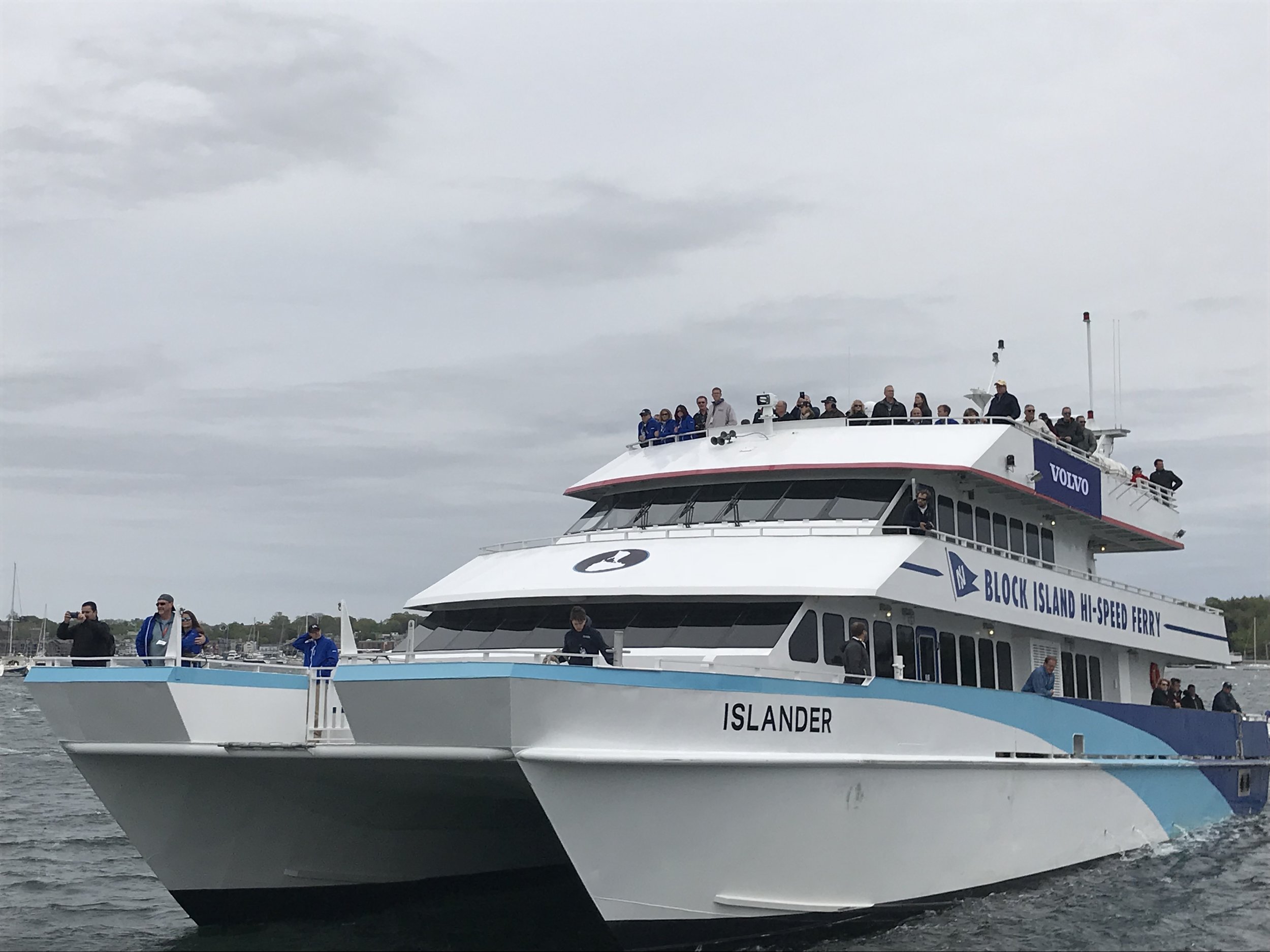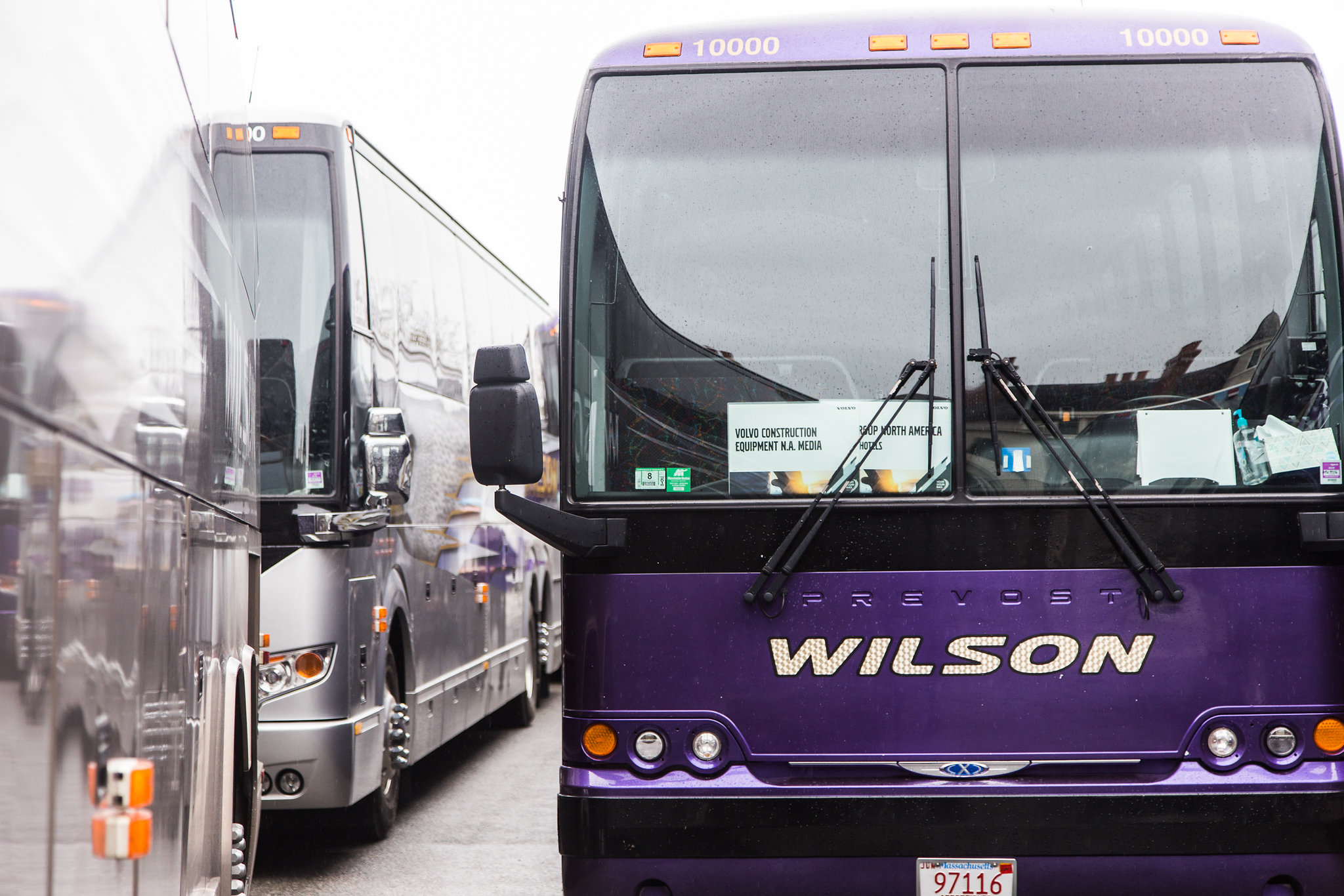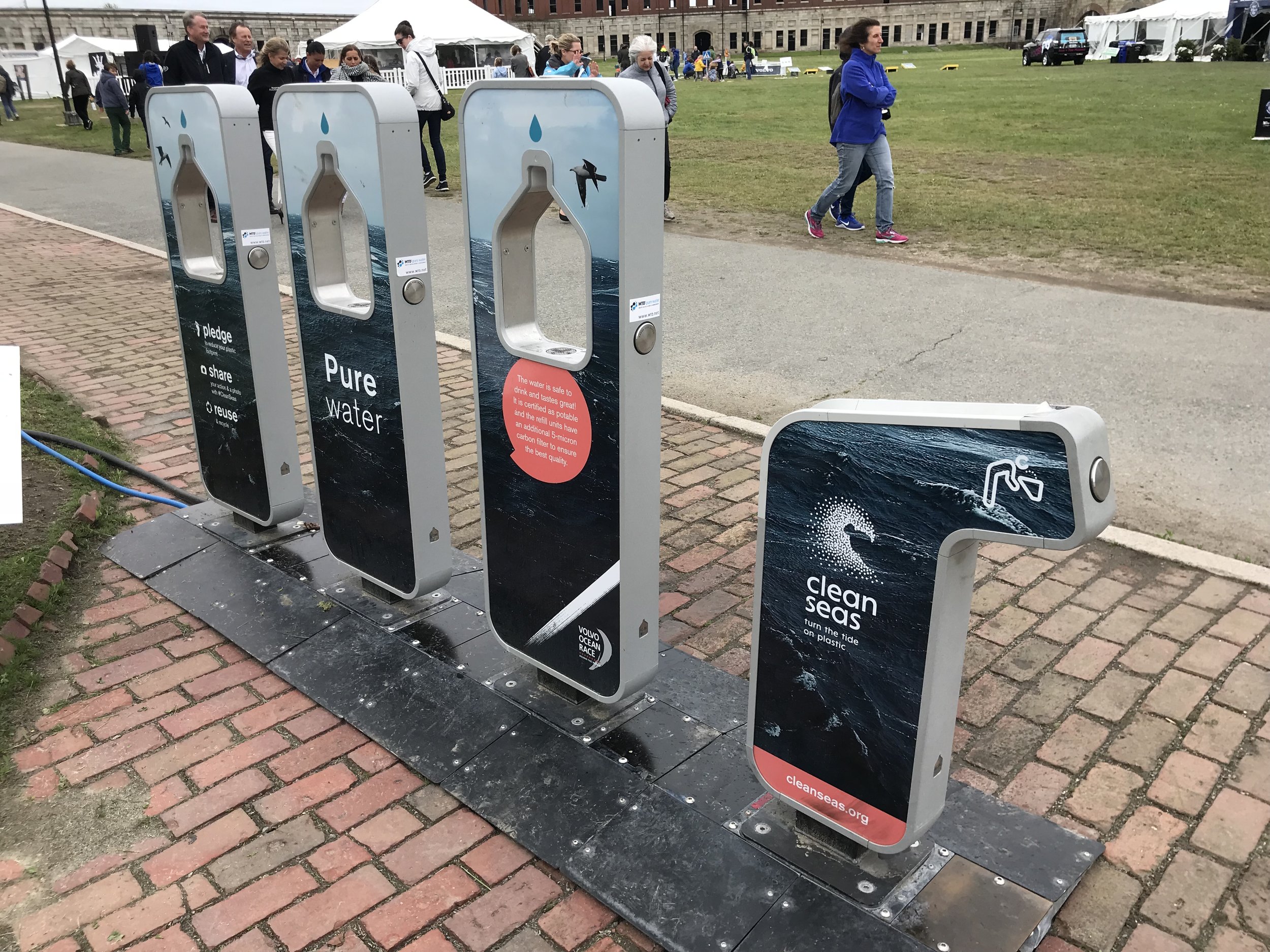Sustainability Initiatives at the Volvo Ocean Race 2018
The Volvo Ocean Race is an intense worldwide sailing competition taking place over nine months with twelve stopovers across the globe. In May 2018, Newport, RI was on the international stage as the sole North American stopover. As the appointed Hospitality Partner for the Newport Stopover, we offered services including hotel selection, meeting planning, transportation, events, activities, spectator boats, catering, event design/entertainment and staffing. We produced 30+ corporate programs plus dozens of limited service contracts, totaling 1,700 people and 5,500+ hotel room nights within the 2-week spread - the vast majority falling over the VIP weekend. We booked 30+ hotels and inns, 30+ vehicles for multiple charters per day, dozens of airport transfers, 5 caterers, 6 event designers and florists, 20+ venues/restaurants, 20+ boat charters and a team of 60+ onsite staff.
While the Volvo Ocean Race has a reputation for being the toughest, longest, and most grueling race in all of sporting, Volvo was committed to using the race and stopovers as a vehicle to raise awareness about the marine pollution the sailors see while sailing around the world. The race uses their sustainability mission and breaks it down to four key categories:
1) Educating the world on the state of our oceans
2) Recognizing our impact and bringing light to encourage change
3) Understanding and reducing our own plastic footprint
4) Leaving a positive legacy in the wake of the Race.
All of these initiatives were strictly enforced in each port, including Newport.
Our company received strict guidelines from Volvo, which we had the responsibility to communicate to our clients and vendors. Some of these requirements posed major challenges – financially and logistically – that our team had to work through in tight time constraints. One of the major challenges was the restriction of single-use plastic in all events that Volvo and Sponsors were a part of; this included plastic water-bottles, utensils, cups, plates, platters, tablecloths, and more. The items selected to be used at Race Village for the general public were not “premium” enough for Volvo’s high-level client events and therefore we were asked to come up with alternative solutions.
The ban of single-use plastics was especially challenging on the 22+ spectator boats we chartered for our Volvo clients. Not only were we not able to use plastic service-ware on board, but the clients had requested glassware and porcelain plates on board (which doesn’t fare well on a moving vessel). Our solution for the cups, plates, and utensils on board was to use true silverware along with small ceramic plates and bowls for food, glass stemless wine glasses and tumbler cups where possible and purchase reusable poly-carbonate on boats that would not allow glass. We worked closely with the caterer and the boat to determine the best place for storage of the glassware and plates, as space was a major concern for the boat as well as keeping them hidden from the guests to ensure the premium look of the overall experience. To find a solution for single-use plastic water bottles, we helped our caterer source a sustainable option- a new product called Canned Water. In addition to using the canned water on all boats and vehicles, we encouraged all clients to purchase reusable, branded water bottles for their guests; with these, they were able to not only reduce their single-use plastic water bottle consumption while in Newport, but also have a great (purposeful!) souvenir to take with them.
One of the largest combined events for 850 people was a Farmer’s Market Wine Festival style event at a local Vineyard, where we needed to choose an alternative to the commonly used plastic-ware. We worked closely with the venue to come up with an alternative, sustainable option that was cost-effective and premium. The solution was to use Bamboo utensils, plates and bowls, which is not only easier to compost, but premium-looking for our clients.
We also organized a shoreline Ocean Clean-Up event for our Volvo Car clients in partnership with Clean Ocean Access (COA), a local non-profit determined to take action reducing pollution levels of our oceans. Volvo Car had expressed interest in acting upon the valued sustainability initiatives of the Race, and wanted to make sure their guests were able to feel that they contributed to the clean-up of our oceans while they were in Newport. We partnered with COA for a cleanup of 100 Volvo Car guests on the shores of Newport, where they were able to see first-hand trash washed ashore, and help clean the area; all proceeds directly benefited COA.
While our main objective throughout the stopover was to ensure that our guests were receiving premium, sustainable alternatives at all of their offsite outings, we also became active in our community to encourage all restaurants, hotels, venues, and caterers to source sustainable options. Several months prior to the Race, our team took part in a community-wide Ocean Clean Up at Fort Adams (which later became Race Village). To show our support for COA and the upcoming Race, we walked around the Fort’s ocean access points to pick-up debris, trash, and other unnatural elements.
We continued to work closely with COA, combining our expertise of hotels and vendors partners behaviors with sustainable solutions that COA provided to encourage our partners to take action using the COA Pledge (a UN-led Clean Seas Campaign). The Pledge offered solutions and action items – for individuals or companies/organizations – on how to advocate for Clean Seas in our world. Our company assisted the non-profit with distributing the material to our partners while following up before, during and after the race had ended with updates and progress. We were able to have many hotels provide canned water (versus plastic water bottles) in hotel rooms, along with reducing or eliminating the amount of plastic bags and packaging for items in the hotel.
After the Race has left Newport, our little city has not slowed their momentum on sustainability initiatives. Newport restaurants and hotels have now banned all plastic straws, and the local grocery stores have replaced plastic bags with paper. Because of the Race, we now feel responsible for helping raise awareness with our local vendors, our 60+ new staff, and the committees and organizations that we as a company are still very much a part of. With these new, growing initiatives, Newport is now even more attractive to companies where sustainability is truly at the forefront of their focus.

